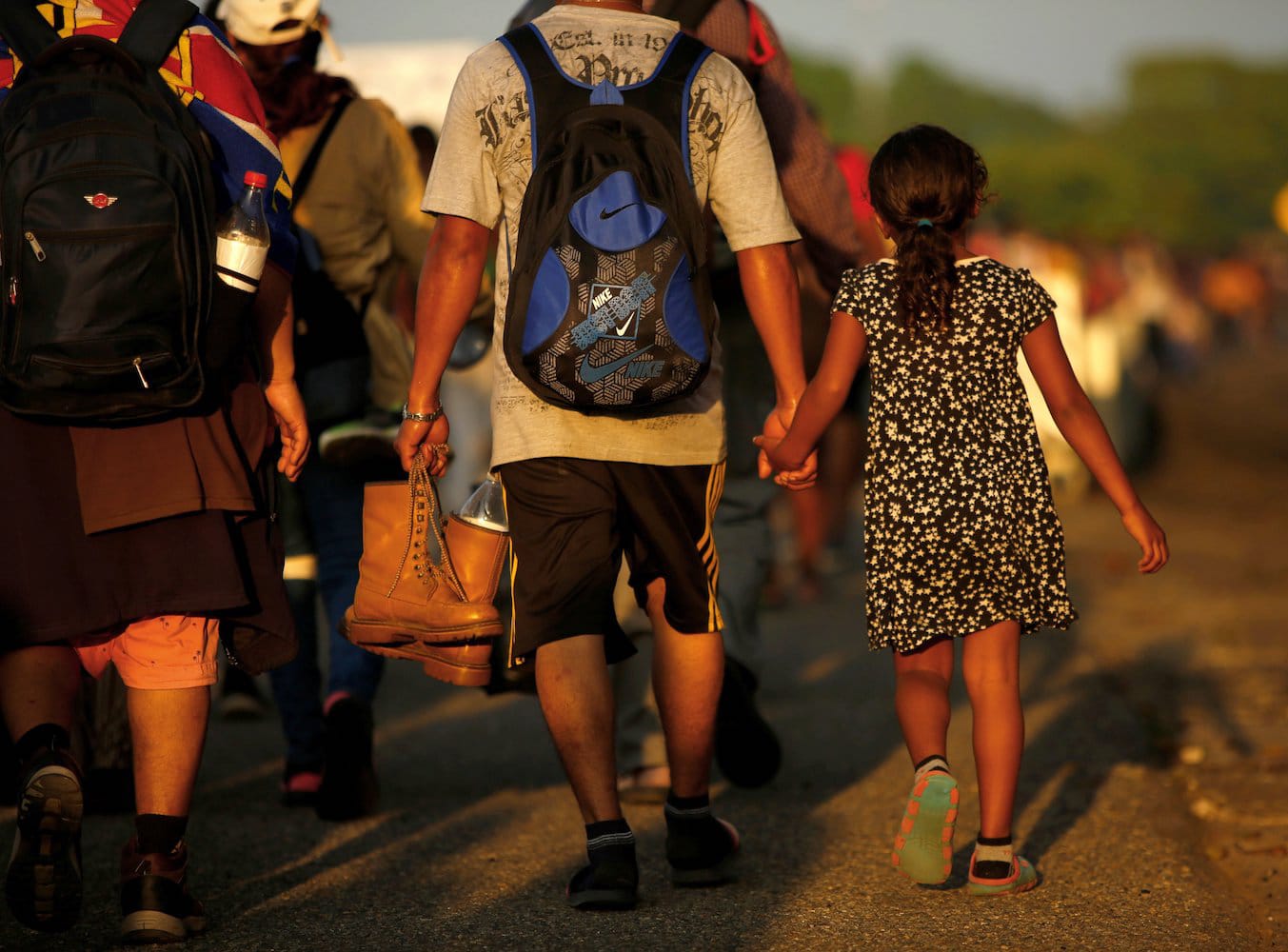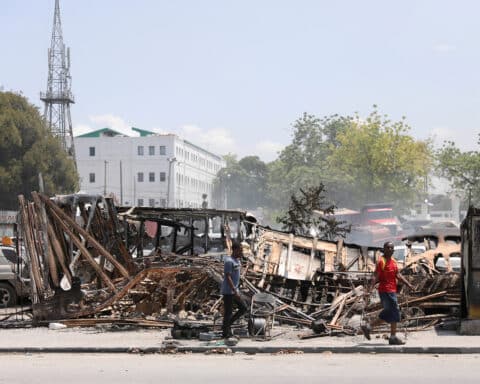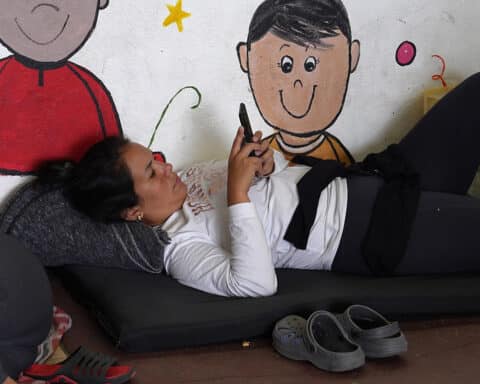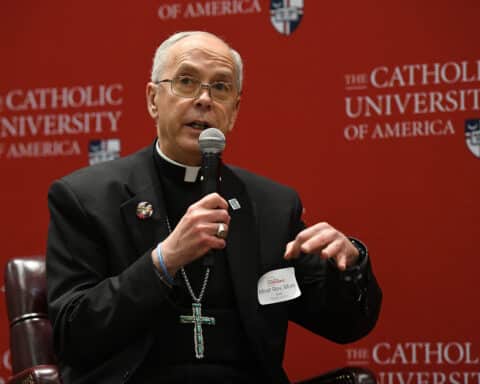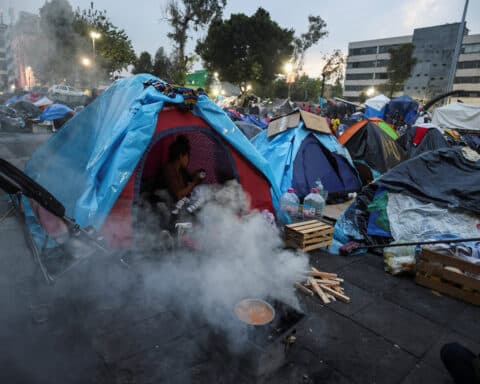“I thought that the day Title 42 was lifted would be a day of celebration,” Tania Guerrero said. “It wasn’t.”
Guerrero is an advocacy attorney who works on policy and advocacy for the Catholic Legal Immigration Network, Inc. (CLINIC). Addressing the ballroom of attorneys, policy advocates and service providers gathered for Catholic Charities’ 6th Immigration Conference sponsored by Catholic Charities of the Diocese of Fort Wayne-South Bend, she laid bare the current struggles migrants encounter at the U.S.-Mexico border.
Title 42 was lifted on May 11, 2023, but President Joe Biden’s asylum ban promptly took effect. “Just when we thought we had removed one brick, we found ourselves trying to lift another,” said Guerrero.
The conference aims to equip attendees with valuable knowledge including essential vocabulary, insights into the economic implications of migration, and an understanding of legal procedures in order to stay abreast of the ever-changing nature of national immigration policies.
Catholic Charities CEO Dan Florin explained the conference saying, “We want to raise awareness about the facts about immigration in the community at large.” Florin shared that this conference was the 6th annual conference, although the event had been suspended due to the outbreak of the COVID-19 pandemic. “With increased awareness and understanding, we want to help spread the truth about the situation of immigration,” Florin continued. “We want to be a force for good for Catholic social justice in order to advocate on behalf of immigrants, without judging their condition, to reinforce the dignity of every human person.”
Facing no-man’s land
Guerrero described the bridges that span the U.S.-Mexico border between Juarez, Mexico, and El Paso, Texas, saying, “Between the cities, you’re in no-man’s-land.” Making the crossing is extremely dangerous for those unfamiliar with how to cross, said Guerrero. “Sometimes you look a certain way, sometimes you’re hesitant, sometimes you’re fearful and that catches an officer’s eye.” Many migrants need advocates to guide them through a successful crossing.
Guerrero said the increased militarization at the border further intimidates migrants. “Heavily armed agents and military vehicles, a situation which has escalated over the years, makes it daunting to cross,” she explained. Guerrero has presented hundreds of immigrants for crossing at the site.
Delays in processing entry
According to Guerrero, U.S. Customs and Border Protection officers claim they are unable to accommodate the inspection and processing of asylum seekers due to limited resources, thus forcing persons seeking asylum to endure weeks or even months in Mexico before being given the chance to initiate the asylum procedure.
Various illegal means of deterrence, known as metering, continue to delay entry. Metering can include systems of lines or ticketing ultimately designed to turn away asylum seekers. According to Guerrero, metering began in 2016, during the Obama administration, when large numbers of Haitian migrants arrived in Tijuana, seeking entry to the U.S. Later, metering expanded to turn back other nationalities, including Mexican nationals seeking protection from persecution within Mexico.
“The announced ‘asylum ban’ by President Biden, is intended to replace the Title 42 summary border expulsion policy, which was initially established by the administration of President Donald Trump under the deceptive claim of safeguarding public health,” Guerrero said. The new policy relies on a mobile application to distribute appointments. But unless they secure an appointment via the “CBP One” app, asylum seekers attempting to enter the United States at the border will be prevented from doing so for a duration of five years under the revised asylum ban. “The result is electronic metering,” Guerrero concluded.
Unaccompanied minors turned back
Unaccompanied minors have, theoretically, always been an exception, Guerrero said. However, in her experience, unaccompanied minors require advocates. “I’ve had to step in and fight for children to enter the United States,” Guerrero declared. “I recently accompanied a pregnant 16 year old from Mexico who had been kidnapped. … She was pregnant due to multiple rapes. I received a call from an agency in Juarez and stepped in to advocate for her as an unaccompanied minor.”
She had already tried to present on her own, but she had not been able to enter on her own. She was being detained on the Mexican side, in Mexico. She was dismissed repeatedly by various authorities, until she was ultimately physically removed. A Good Samaritan took her to a shelter, where she connected with Guerrero.
When Guerrero tried to accompany the young woman across the border, Mexican border personnel again denied the girl’s legal right to entry, despite an email Guerrero was able to present verifying permission had been granted by a supervisor. Unfortunately shifts had changed and Guerrero had to argue with personnel since the supervisor who had granted the permission to present at the port of entry was no longer on duty.
In addition to the difficulties unaccompanied minors face, Guerrero noted families continue to be separated, despite President Biden’s insistence of policy reversal. “Families continue to be separated at the border, regardless of what anyone else is telling you,” Guerrero said.
Moving forward
“Our best armor is information,” Guerrero said. “Collective knowledge allows people to defend themselves.” Encouraging the attorneys and community leaders attending, Guerrero concluded, “Binational legal services are some of our best weapons, to help educate people, equipping them to protect themselves.”
“Accompaniment and inclusion comes in many forms,” she said. “We have to be courageous enough to reimagine how legal services can work to help those most in need in the future.”

